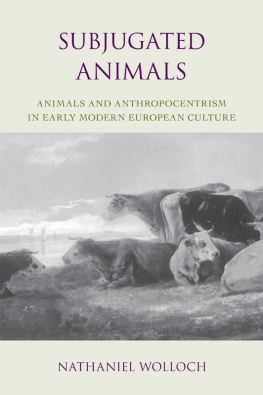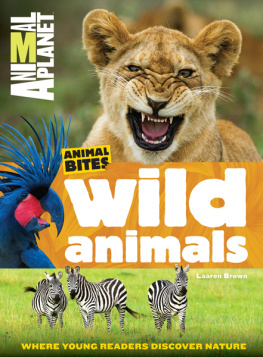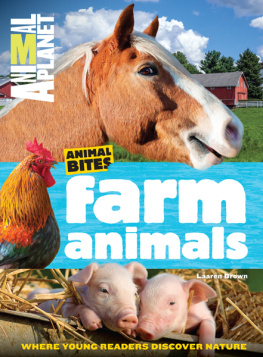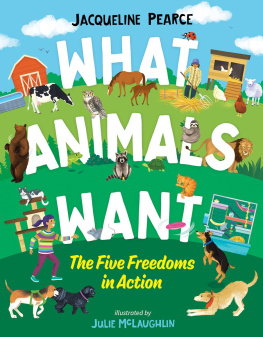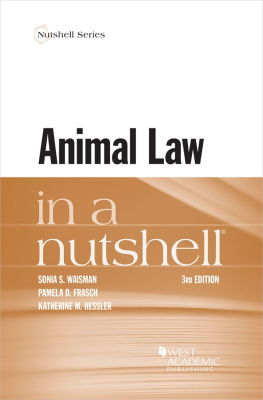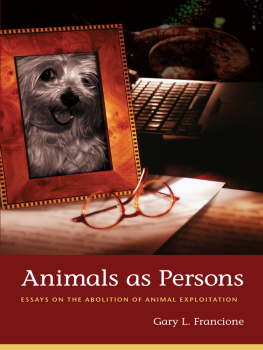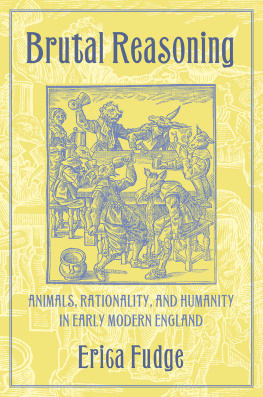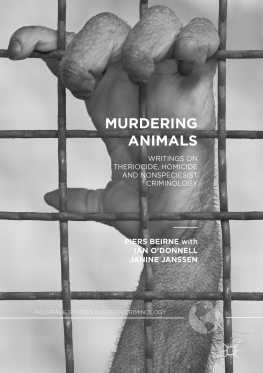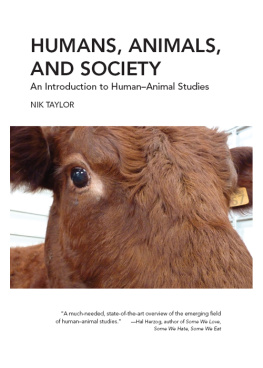
The list of books mentioned here is by no means a comprehensive list of studies of attitudes toward animals. My intention is only to suggest a very basic list of recommended studies for those wishing to pursue further reading on this topic. My criteria for selection here was simple: only secondary literature; only books in the English language; only topics discussed in detail in this book; with very little exception, no books relating to periods later than the end of the eighteenth century; and finally, books of a general nature, and as readable as possible. There are many books (and articles) no less important than those mentioned here, but I have made do with those I thought would be suitable for readers new to the history of attitudes toward animals. For other studies see the notes and bibliography.
The foundations for the modern study of early modern attitudes toward animals were laid many years ago in several excellent studies. They are Dix Harwood, Love for Animals and How it Developed in Great Britain (New York, 1928); George Boas, The Happy Beast in French Thought of the Seventeenth Century (New York, 1966) [first published 1933]; Hester Hastings, Man and Beast in French Thought of the Eighteenth Century (Baltimore, 1936); and Leonora Cohen Rosenfield, From Beast-Machine to Man-Machine, Animal Soul in French Letters from Descartes to La Mettrie (New York, 1968) [first edition 1940].
While these detailed books are not likely to be supplanted, they leave much room for further research. Among contemporary studies, one of the earliest and best-known is Keith Thomas, Man and the Natural World, Changing Attitudes in England 1500-1800 (Harmondsworth, 1984). Recent years have seen a rapid increase in publication of studies of early modern attitudes toward animals. See particularly Bruce Boehrer, Shakespeare Among the Animals, Nature and Society in the Drama of Early Modern England (New York and Basingstoke, 2002); Erica Fudge, Perceiving Animals, Humans and Beasts in Early Modern English Culture (Basingstoke and London, 2000); and the excellent collection of articles edited by Fudge, Renaissance Beasts, Of Animals, Humans, and Other Wonderful Creatures (Urbana and Chicago, 2004). Rod Preece, Animals and Nature, Cultural Myths, Cultural Realities (Vancouver, 1999), although not devoted entirely to western culture, and while in my view it is over-optimistic in its interpretation of western attitudes toward animals, is very readable and informative.
Among less scientific-academic publications, one can mention E. S. Turner, All Heaven in a Rage (London, 1964); and Colin Spencer, The Heretic's Feast, A History of Vegetarianism (Hanover and London, 1996), both very readable.
Two excellent and entertaining studies which contain much material on scientific, social and intellectual history are Silvio A. Bedini, The Pope's Elephant (Nashville, 1998); and Louise E. Robbins, Elephant Slaves and Pampered Parrots, Exotic Animals in Eighteenth-Century Paris (Baltimore and London, 2002).
For attitudes toward animals in antiquity see especially the excellent study by Richard Sorabji, Animal Minds and Human Morals, The Origins of the Western Debate (Ithaca, 1993). For a good introduction to medieval attitudes toward animals see Joyce E. Salisbury, The Beast Within, Animals in the Middle Ages (New York and London, 1994). Both eras are discussed in detail in Francis Klingender, Animals in Art and Thought to the End of the Middle Ages (London, 1971). As for attitudes toward animals subsequent to the early modern era, these fall outside the discussion here, but one can mention, for its quality and particular emphasis on ethical issues, James Rachels, Created from Animals, The Moral Implications of Darwinism (Oxford and New York, 1990).
A couple of excellent studies devoted to the two most important animal painters of the seventeenth century should be mentioned, both for their text and for their many excellent illustrations; these are Amy Walsh, Edwin Buijsen and Ben Broos, Paulus Potter, Paintings, Drawings and Etchings, exhibition catalogue (The Hague and Zwolle, 1994); and Susan Koslow, Frans Snyders (Antwerpen, 1995).
This is not the place, and I am not enough of an expert in the field, to give detailed recommendations of modern philosophy books dealing with the ethics of animal rights. In general, in the last three decades or so, philosophers have been somewhat ahead of historians in their interest in attitudes toward animals, and there is a very large and rapidly growing literature in this field. One can, however, mention the two most famous modern philosophy books dealing with animal rights, Peter Singer, Animal Liberation (New York, 1991); and Tom Regan, The Case for Animal Rights (Berkeley and Los Angeles, 1985).
The study of the history of attitudes toward animals in general, and in the early modern era in particular, is relatively new as an academic field of research, but is growing rapidly and approaching the status of a sub-discipline. Most studies of this topic have a predictable predilection for one type of historiography, whether this be intellectual, social, scientific, literary or artistic history, although efforts at a more interdisciplinary approach are also becoming gradually more common. This is therefore rather a broad field of research, rapidly expanding in many motley directions. Yet this is also what seems positive and invigorating in this field. Contrary to other more traditional historiographical topics, there is much more room here for intellectual imagination and daring. The fact that there is an acute political urgency regarding anything that has to do with the human relationship with nature, practically ensures that interest in this topic is not likely to wane soon. But even those interested in it just from an academic historiographical perspective, will find the study of the history of attitudes toward animals intellectually interesting and challenging.

PRIMARY SOURCES
Addison, Joseph, Richard Steele et al., The Spectator, ed. Gregory Smith, 4 vols. (London and New York, 1966-67).
Albert the Great, Man and the Beasts, De Animalibus (Books 22-26), trans. James J. Scanlan (Binghamton, 1987).
Aldrovandi, Ulisse, Aldrovandi on Chickens, trans. L. R. Lind (Norman, 1963).
Andreae, J. V., Christianopolis, trans. Edward H. Thompson (Dordrecht, 1999).
Angel, Flores (ed.), The Laurel Masterpieces of World Literature, Medieval Age (New York, 1963).
Apuleius, The Golden Ass of Apuleius, trans. Robert Graves (New York, 1951).
Aristotle, History of Animals, Books VII-X, trans. D. M. Balme (Cambridge, Mass. and London, 1991).
. Politics, trans. Benjamin Jowett (New York, 1943).
Ascham, Roger, The Scholemaster, ed. John E. B. Mayor (New York, 1967).
Augustine, St., Contra secundam Juliani Responsionem imperfectum opus, sex libros complectens, book 1, ch. 39, in J.-P. Migne (ed.), Patrologia Latinae (Turnhout, n.d.), vol. 45, 1064-65.
Bacon, Francis, New Atlantis, in Henry Morley, Ideal Commonwealths (New York and London, 1901), 101-37.
Barnouw, Adriaan J., Coming After, an Anthology of Poetry from the Low Countries (New Jersey, 1948).
Bayle, Peter, The Dictionary Historical and Critical, trans. anon. (London, 1737).
Bayle, Pierre, Historical and Critical Dictionary (Selections)
Next page
